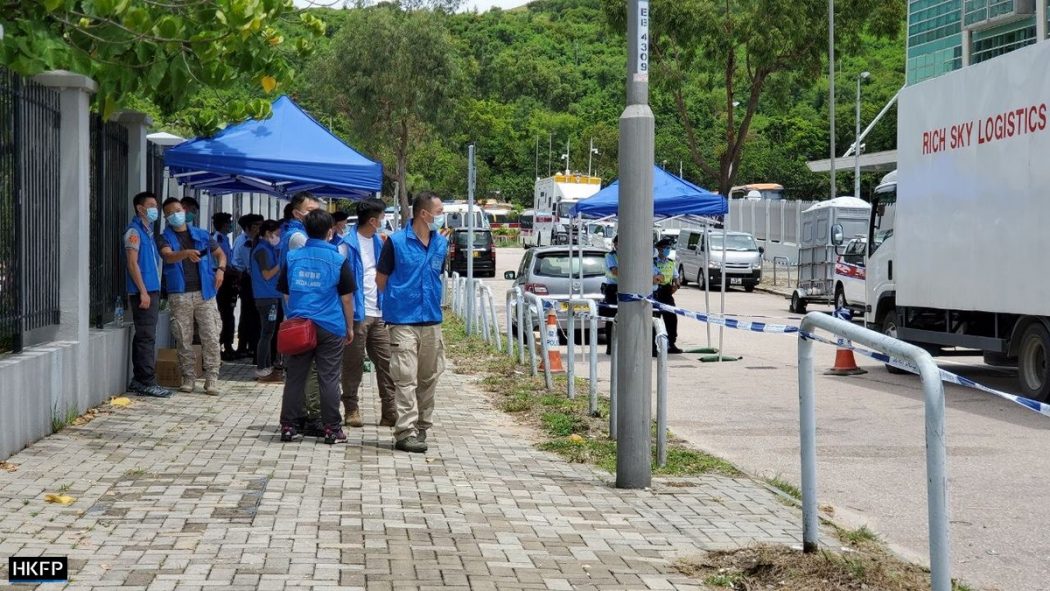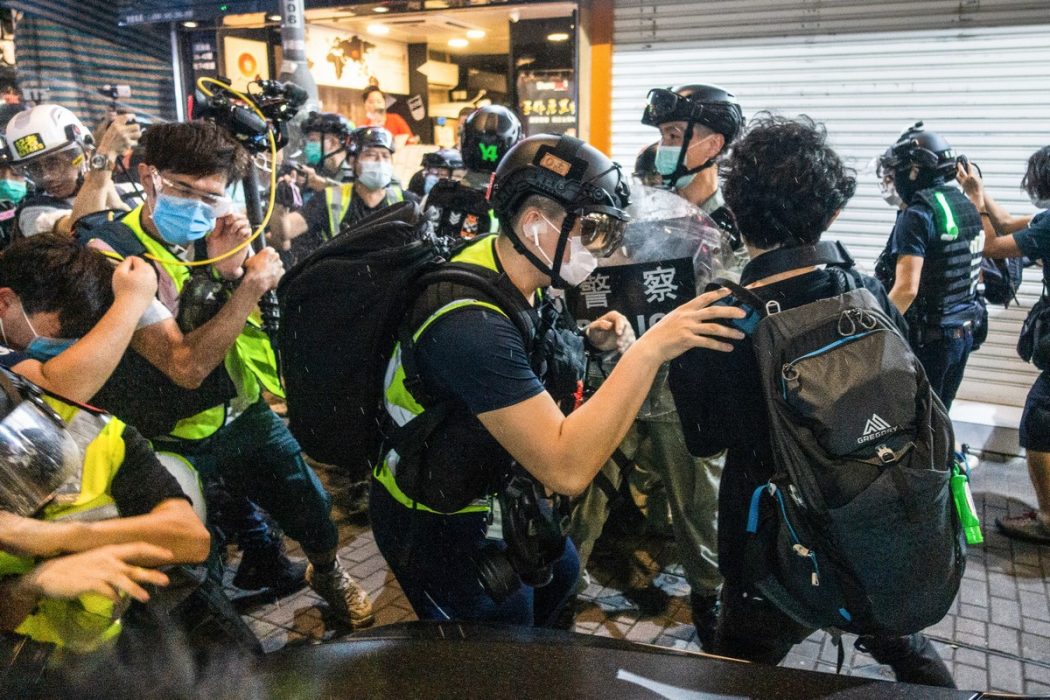Hong Kong police have said that they will select which media outlets have close access to their operations on the ground, after keeping several local and international news organisations at a distance during Monday’s unprecedented raid on a pro-democracy newspaper.
Police Commissioner Chris Tang told HK01 in an exclusive interview that only “trusted media” should be allowed inside a cordoned-off crime scene.

“It depends on the past performance of those media — whether they behaved in a way that the police deemed unprofessional,” the police chief said. “Criteria include whether their reporting is objective, whether they have participated in actions other than reporting, whether they would obstruct officers from performing their duty or if they would pose danger to officers.”
Police Public Relations Branch Chief Superintendent Kenneth Kwok and National Security Department Senior Superintendent Steve Li met the press on Monday evening following the force’s earlier raid on Apple Daily and the arrests of proprietor Jimmy Lai and nine others under a draconian new national security law.
When challenged by reporters about the decision to allow only 15 news outlets inside the cordon, Kwok said police must strike a balance between operational efficiency and media rights to reporting. “Of course given the location’s geographical restraints, the operational considerations, the safety of our officers as well as some police assessments, we can’t allow all to go across the cordon line.”
He said it was rare at any time for dozens of media agencies to be allowed inside a cordoned-off area, but police on Monday had provided information by briefing reporters on the ground and editors in newsrooms.

International news agencies including Reuters, AP and AFP, together with local online media StandNews and InMedia were among organisations that were kept outside the cordoned-off area on Monday.
Under an agreement governing Hong Kong’s handover from Britain to China in 1997, the semi-autonomous region was guaranteed freedoms unknown in mainland China, including freedom of the press.
At the height of last year’s city-wide protests that erupted over an ill-fated extradition bill, Chief Executive Carrie Lam said the government has no intention of vetting journalists: “We have no intention or plan to start a centralised registration system for journalists, not to mention doing any vetting on who can conduct reporting,” she said. “Freedom of speech is a core value of Hong Kong, and I completely agree that the media has a role as the ‘fourth estate’ in monitoring the government. So our job is to facilitate and assist the work of the media.”
Search warrant
Over 200 police officers raided Next Media headquarters in Tseung Kwan O on Monday after the arrest of its owner Jimmy Lai on suspicion of colluding with foreign forces, an offence under the national security law. Officers were accused of infringing privacy and the confidentiality of sources as some of them searched and read documents on reporters’ desktops.
Kwok said he had told officers to stop searching the editorial and reporters’ area. “At 11 o’clock I asked them all to stop… That… can show our determination to protect journalistic material.” He said police would not examine journalistic material in deciding whether seized documents had “evidential value.”

Neither Kwok, Li or Tang clarified what criteria would be used in determining what qualifies as journalistic material. Tang said police have consulted the Department of Justice.
Next Media Trade Union Chairperson Pun Pak-lam told RTHK radio that police had launched an “invasive” search of Apple Daily’s finance, local news, politics and assignment editors’ desks.
Agnes Chow arrested
In the operation, police rounded up 10 pro-democracy activists and members of the press, aged 23 to 71, including ex-Demosisto member Agnes Chow.

The activist, who is already facing charges of unauthorised assembly during last year’s protests and has pleaded guilty, was arrested at her home in Tai Po late at night.
Support HKFP | Policies & Ethics | Error/typo? | Contact Us | Newsletter | Transparency & Annual Report | Apps
Help safeguard press freedom & keep HKFP free for all readers by supporting our team

























